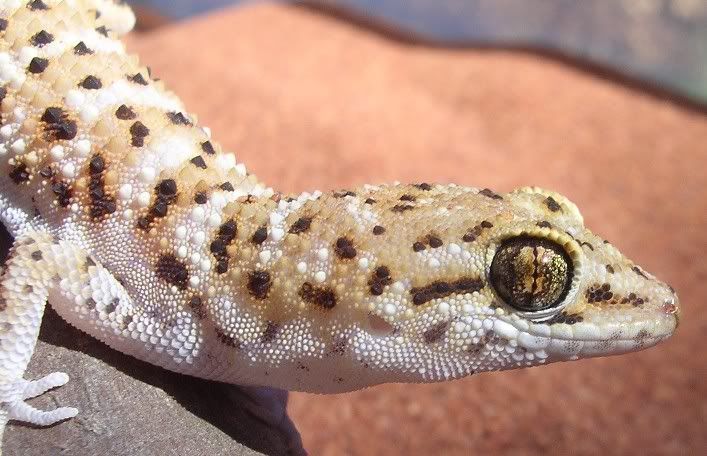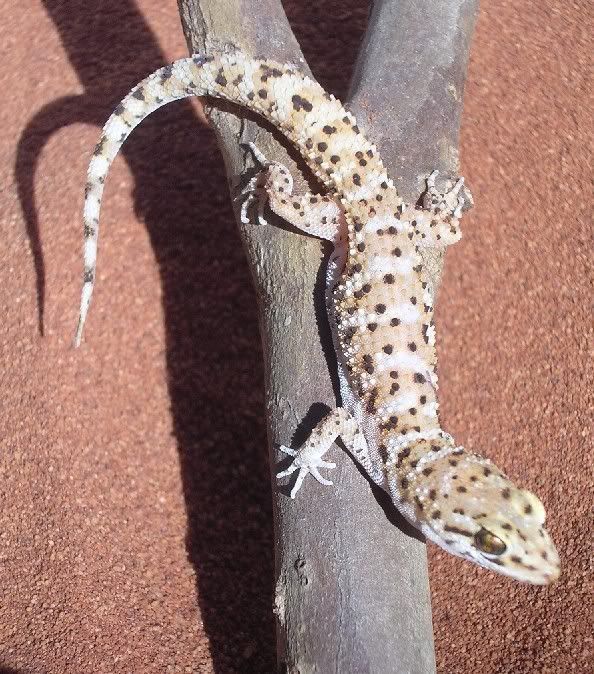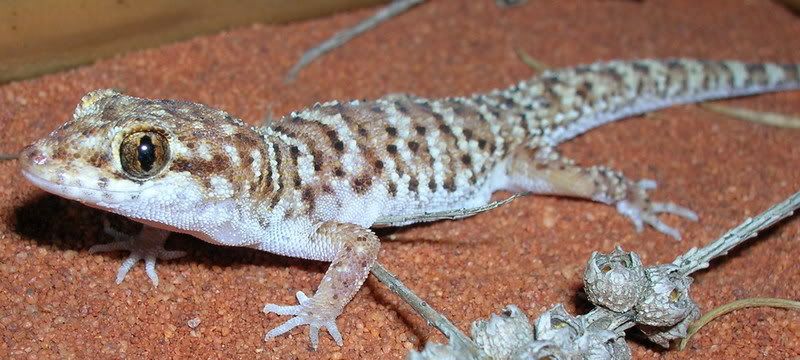Sdaji
New member
Hi all,
I know there is a small number of parthenogenetic (females reproducing on their own, asexually, without the assistance of males, typically clonally) geckoes, I am interested in finding out what species are being kept overseas. I find these absolutely fascinating and have been lucky enough to be able to get several different clone lines of a parthenogenetic species from here in Australia. Currently an undescribed species in the genus Heteronotia, it is still usually lumped together under the name Heteronotia binoei ("Bynoe's Gecko") along with at least three other species (the others are all normal, sexually reproducing species). For those who don't know, parthenogens can either be facultative (they can either reproduce asexually or normally) or obligate (they are only capable of reproducing via parthenogenesis, the species have no males and reproduction is clonal). The Heteronotia I have been working with are obligate parthenogens and the species originated over 100,000 years ago (before humans existed), so the animals I produce now are clones of animals which lived all the way back then! Very, very cool!
I'm sure you'd like to see some pictures... I'll get to them
They are arid zone specialists, adapted to live in extreme conditions, which means they absolutely thrive in the very cosy conditions I give them They are terrestrial, surprisingly diurnal (at least in captivity) and very bold.
They are terrestrial, surprisingly diurnal (at least in captivity) and very bold.
Okay, I'll shut up and get to pictures!
Here is a baby one, she is one I've become quite attached to this season and I don't think I'll be able to part with her!

And this is her mother. This clone is called "Sandstorm", all the Sandstorms are clones of each other, etc etc. As you can see, the colours change as they grow. This is my favourite clone


And here is another one I'm working with. I've produced a few of this clone this season. I am quite fond of this clone because I had one hooked up to the computer while working in a lab when I first logged on to an online reptile forum! :lol: I spent a lot of time working on this clone in the lab, so it's fun to now have them as pets, even if I don't have any of the actual individuals I worked with :lol:
I know there is a small number of parthenogenetic (females reproducing on their own, asexually, without the assistance of males, typically clonally) geckoes, I am interested in finding out what species are being kept overseas. I find these absolutely fascinating and have been lucky enough to be able to get several different clone lines of a parthenogenetic species from here in Australia. Currently an undescribed species in the genus Heteronotia, it is still usually lumped together under the name Heteronotia binoei ("Bynoe's Gecko") along with at least three other species (the others are all normal, sexually reproducing species). For those who don't know, parthenogens can either be facultative (they can either reproduce asexually or normally) or obligate (they are only capable of reproducing via parthenogenesis, the species have no males and reproduction is clonal). The Heteronotia I have been working with are obligate parthenogens and the species originated over 100,000 years ago (before humans existed), so the animals I produce now are clones of animals which lived all the way back then! Very, very cool!
I'm sure you'd like to see some pictures... I'll get to them
They are arid zone specialists, adapted to live in extreme conditions, which means they absolutely thrive in the very cosy conditions I give them
Okay, I'll shut up and get to pictures!
Here is a baby one, she is one I've become quite attached to this season and I don't think I'll be able to part with her!

And this is her mother. This clone is called "Sandstorm", all the Sandstorms are clones of each other, etc etc. As you can see, the colours change as they grow. This is my favourite clone


And here is another one I'm working with. I've produced a few of this clone this season. I am quite fond of this clone because I had one hooked up to the computer while working in a lab when I first logged on to an online reptile forum! :lol: I spent a lot of time working on this clone in the lab, so it's fun to now have them as pets, even if I don't have any of the actual individuals I worked with :lol:


